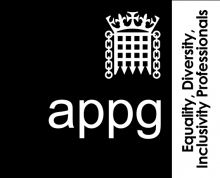By Khalid Mahmood MP, Chair of the All Party Parliamentary Group for EDI Professionals
Whilst the polar ice caps melt away does the affinity and focus given to equalities, diversity and inclusion (EDI) concerns also equally ebb and flow?
Maybe. Although I fear there’s a real danger and distinct prospect of a threat. I have often felt that issues raised around EDI are welcomed, readily agreed and then put into “a plan” for further action. Yet in reality not a lot really changes. Is the all-important green agenda, global warming and greenhouse concerns poised to override or obscure matters of equality, diversity and inclusivity? If that is the case are the all-important green considerations only to be put into “a plan” where they too will effectively be ignored, eventually?
It goes without saying that both considerations (and indeed many more) are vital elements to a civilised, progressive society. Yet there is evidence emerging that EDI concerns are becoming buried almost as though they are yesterday’s issues.
I asked my colleagues at embraceEDI to evaluate a small offering of contemporary documents issued by the government and their executive agencies. embraceEDI provide secretariate support to the All Party Parliamentary Group for EDI Professionals and know their way around the realm of equalities well.
They looked at a number of documents issued by local councils and health authorities, local government and HM government departments and agencies. Using six key words, three green and three EDI orientated, they examined a variety of key publications. In all but one document they found that the green agenda was well ahead of EDI. In one case 90.6% of the document was found to lean towards green issues compared to a paltry 9.35% representation on EDI matters. It is therefore not unreasonable to conclude from this evidence, the sentiment that it’s all going green at the cost of dropping concerns around EDI.
Overall embraceEDI identified that very close to 60% of the weightings leant towards green issues, leaving EDI matters on a declining 40%. This is really disappointing. The matters that EDI promote are as important today as when they first emerged.
Could it be that the well paid bureaucrats that run these organisations are merely paying lip service to these two agendas? Perhaps they only ever really respond to the Zeitgeist of the day, as this tender survey suggests. My advice is that they are both very serious matters and need to be consistently considered as such.
Is this lack of commitment the thin end of the wedge or just a terrible oversight? This is a danger, and I feel the issue no matter how uncomfortable it is, needs to be raised. We simply cannot take numerous steps backwards and allow “EDI blindness” to perk its unsavoury head from under a stone.
There reality is room for both and no one agenda needs to lose out.
